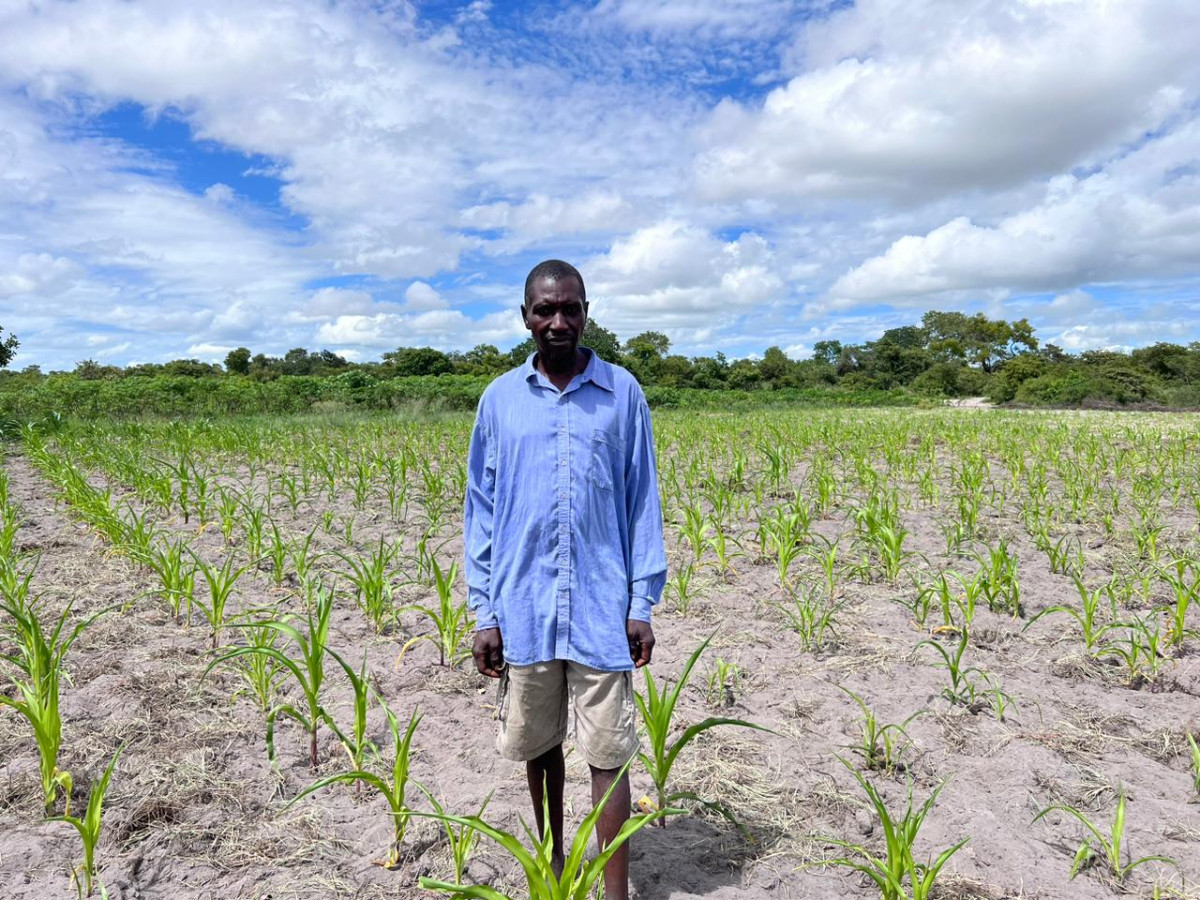Biochar - Fueling a Regenerative Agriculture Revolution in Zambia
Published: Feb 20, 2024 Reading time: 2 minutes Share: Share an articleIn the sandy lands of Mongu, Western Province, Zambian farmers rely on steady rainfall to provide for their families. However, the rainfall has become increasingly erratic in recent years, severely impacting crop yields. Without a reliable harvest, hunger looms large. Farmers pray daily for stable rain, and our innovative biochar project, funded by UNDP, offers an answer as biochar retains moisture and supports sustainable farming.

People in Need (PIN) is spearheading this project in Zambia to reduce climate shocks.
Biochar is a charcoal-like material made by burning agricultural and forestry waste biomass. It is produced through a unique process that results in low contamination and allows for safe carbon storage. Unlike regular charcoal, biochar enhances soil quality by reducing acidity and helps sandy soils retain water better to minimise plant drought stress and nutrient leaching.
According to a Rural Agriculture Survey by the Indaba Agricultural Policy Research Institute (IAPRI), the Western Province has the lowest agriculture production figures in Zambia. They contend with issues around food provision, climate-smart techniques, fertiliser use, household income, etc. Over 76% of households here live below the poverty line, and small land holdings averaging 2.4 ha with almost no irrigation are highly vulnerable to droughts and crop failure. (IAPRI 2019)
In response, we determine the extent to which smallholder farmers can adopt biochar production as a practical, economically feasible practice to increase their agriculture production and drought resilience and improve their livelihoods. As a result of this project, 20 target farmers and 171 follower farmers have improved their knowledge and gained skills to effectively apply biochar to the soil using conservation farming techniques, impacting the volume of their yields and improving their income.
Farmers showcase the potential of community-led biochar production to improve livelihoods and mitigate climate change.
We aim to accelerate this shift through technical training, public awareness, and impact-driven action to promote this triple-win solution for the people of Western province.



